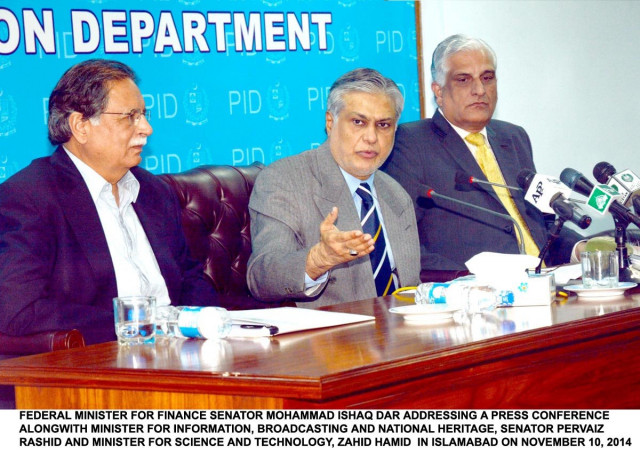Building forex reserves: Govt to raise over $2b from domestic, global markets
Road shows for Sukuk to be held in UK, Gulf states later this month.

In a bid to overcome the challenge of building foreign currency reserves to satisfy the International Monetary Fund (IMF), the government is going to raise more than $2 billion from international and domestic markets in the next few months.
This is in addition to another $2 billion that are expected to be approved by multilateral financial institutions including the IMF.
After a lacklustre response of investors to the share offer of Oil and Gas Development Company Limited (OGDCL), the government has decided to adopt a three-pronged strategy to off-set the impact, according to officials of the Ministry of Finance and Economic Affairs.
It will use a combination of dollar purchases from the domestic spot market, borrow dollars from commercial banks and raise the borrowing threshold by floating Sukuk (Islamic bonds).
“Depending on the response of investors, the government may raise more than $1 billion by floating Sukuk,” said Finance Minister Ishaq Dar while talking to the media here on Monday.
He, however, said the government would pitch $500 million, adding road shows for the offer would be held from November 23 to 25 in the United Kingdom and Gulf states.
Blaming Pakistan Tehreek-e-Insaf Chairman Imran Khan for the poor response to the OGDCL share float, Dar said Khan had dented investor confidence, which adversely affected the transaction.

Against the hope of receiving $830 million, the investors offered only $342 million, forcing the government to withdraw the offer.
Dar said Sukuk sales would come to an end before the close of November, which would also help achieve the end-December target of gross foreign currency reserves including those held by private banks at $15 billion.
However, according to market analysts, the success of Sukuk will largely hinge on the premium the government will offer to the investors.
It set the benchmark at 8.25% when it raised $2 billion by floating 10-year dollar-denominated bonds. If the government was ready to increase the threshold, it may get more than $1 billion, they said.
At present, the country’s total foreign currency reserves stand at $13.5 billion including $4.8 billion held by commercial banks. However, the IMF does not consider the foreign currency held by private banks as part of official reserves.

A recent statement of the IMF suggests that Pakistan has to increase its reserves to a level sufficient to back “three months of imports by the end of fiscal year 2014-15”.
According to data compiled by the Pakistan Bureau of Statistics, from July through September, the three-month import bill stood at $12.5 billion. By this account, the government is falling short of the target by $4 billion, which it has to meet in the next seven months. Currently, the SBP’s reserves are at $8.6 billion.
Building the foreign currency reserves is an area where the government is facing problems and has obtained three concessions from the IMF in the last five reviews.
The IMF was expected to release the next loan tranche of $1.1 billion in December while another tranche of $550 million may be released in March-April next year, depending on the country’s ability to meet all performance and quantitative criteria, the officials said.
They added the Asian Development Bank and the World Bank were also expected to extend loans of $800 million to $1 billion, provided all conditions attached to them were met.
Officials of the finance ministry did not disclose the size of commercial borrowing but said it was an important part of the reserves-building strategy.
However, the amount is expected to be in the range of $300 million to $500 million. The last pillar of the strategy is raising dollars from the domestic spot market.
Published in The Express Tribune, November 11th, 2014.
Like Business on Facebook, follow @TribuneBiz on Twitter to stay informed and join in the conversation.



















COMMENTS
Comments are moderated and generally will be posted if they are on-topic and not abusive.
For more information, please see our Comments FAQ